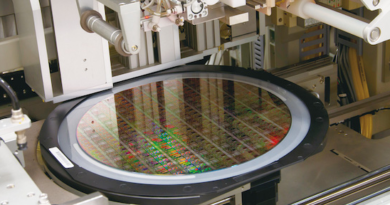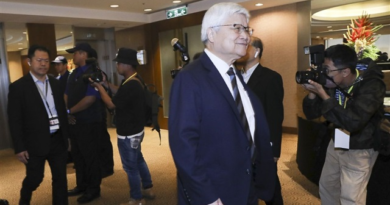BIS Updates October 2022 Semiconductor Export Control Rules – Skadden, Arps, Slate, Meagher & Flom LLP
Brooks E. Allen Brian J. Egan Eytan J. Fisch Michael E. Leiter Tatiana O. Sullivan Jordan Cannon Ondrej Chvosta Nicholas Kimbrell Jillian V. Norton Patrick Stewart
On October 17, 2023, the U.S. Department of Commerce’s Bureau of Industry and Security (BIS) released two interim final rules1,2 to reinforce and expand controls on (a) advanced semiconductors and related computing items (the Advanced Semiconductors Rule) and (b) semiconductor manufacturing equipment (the Semiconductor Manufacturing Equipment Rule). BIS explained that the new rules, which expand upon the semiconductor export controls BIS imposed in a rule issued October 7, 2022 (the October 2022 Rule),3 are intended to address China’s efforts to obtain advanced integrated circuits (ICs) for the development of artificial intelligence (AI) and other technologies for military applications and to procure manufacturing equipment essential to producing ICs for advanced weapons systems.
The new rules:
Commerce Secretary Gina Raimondo described the new measures as “clos[ing] loopholes” in the October 2022 Rule and stated they will likely be updated “at least annually.” The new rules become effective on November 17, 2023.
The Advanced Semiconductor Rule expands upon the controls for advanced semiconductors (and computers containing such semiconductors) established in the October 2022 Rule. Key updates include:
The Semiconductor Manufacturing Equipment Rule includes four primary changes from the October 2022 Rule:
While the new rules include some restrictions indirectly targeting some cloud computing services (most notably the advanced semiconductor end-use controls for Prohibited Entities), the rules do not attempt to control the provision of cloud computing services (Infrastructure as a Service, or IaaS) in a more comprehensive manner. In commentary accompanying the rules, BIS notes that the agency is “concerned regarding the potential for China to use IaaS solutions to undermine the effectiveness” of the semiconductor rules, and that the agency “continues to evaluate how it may approach this through a regulatory response.” Among other topics, the new rules seek comments from IaaS providers “on the feasibility for them in complying with additional regulations in this area, how they would identify whether a customer is ‘developing’ or ‘producing’ a dual-use AI foundation model, and what actions would be needed to address this national security concern while minimizing the business process changes that would be required to comply with these regulations.”
Finally, BIS issued a third rule adding 13 China-based entities to the Entity List for their alleged involvement in the development of advanced computing ICs. These 13 listings all include a “footnote 4” designation, which restricts exports, reexports or transfers (in country) to these entities or when these entities are a party to the transaction under the Entity List Foreign Direct Product Rule implemented in the October 2022 Rule.
With the Advanced Semiconductors Rule and Semiconductor Manufacturing Equipment Rule, BIS delivered on its public statements that the agency would expand and clarify the October 2022 Rule. Companies throughout the semiconductor supply chain should carefully evaluate the new rules, which cover jurisdictions well beyond China and address additional equipment and support not covered by the October 2022 Rule.
_______________
1 Interim Final Rule, Implementation of Additional Export Controls: Certain Advanced Computing Items; Supercomputer and Semiconductor End Use; Updates and Corrections (Oct. 17, 2023).
2 Interim Final Rule, Export Controls on Semiconductor Manufacturing Items (Oct. 17, 2023).
3 Interim Final Rule, Implementation of Additional Export Controls: Certain Advanced Computing and Semiconductor Manufacturing Items; Supercomputer and Semiconductor End Use; Entity List Modification (Oct. 7, 2022).
This memorandum is provided by Skadden, Arps, Slate, Meagher & Flom LLP and its affiliates for educational and informational purposes only and is not intended and should not be construed as legal advice. This memorandum is considered advertising under applicable state laws.



